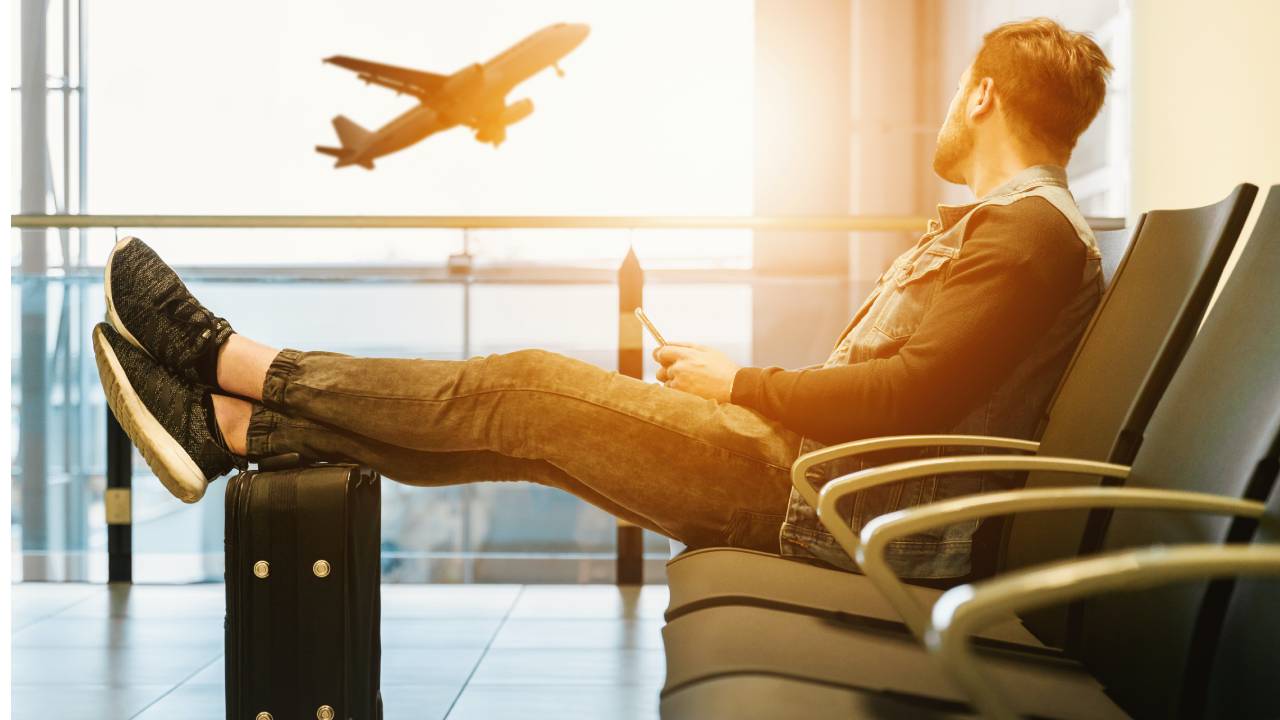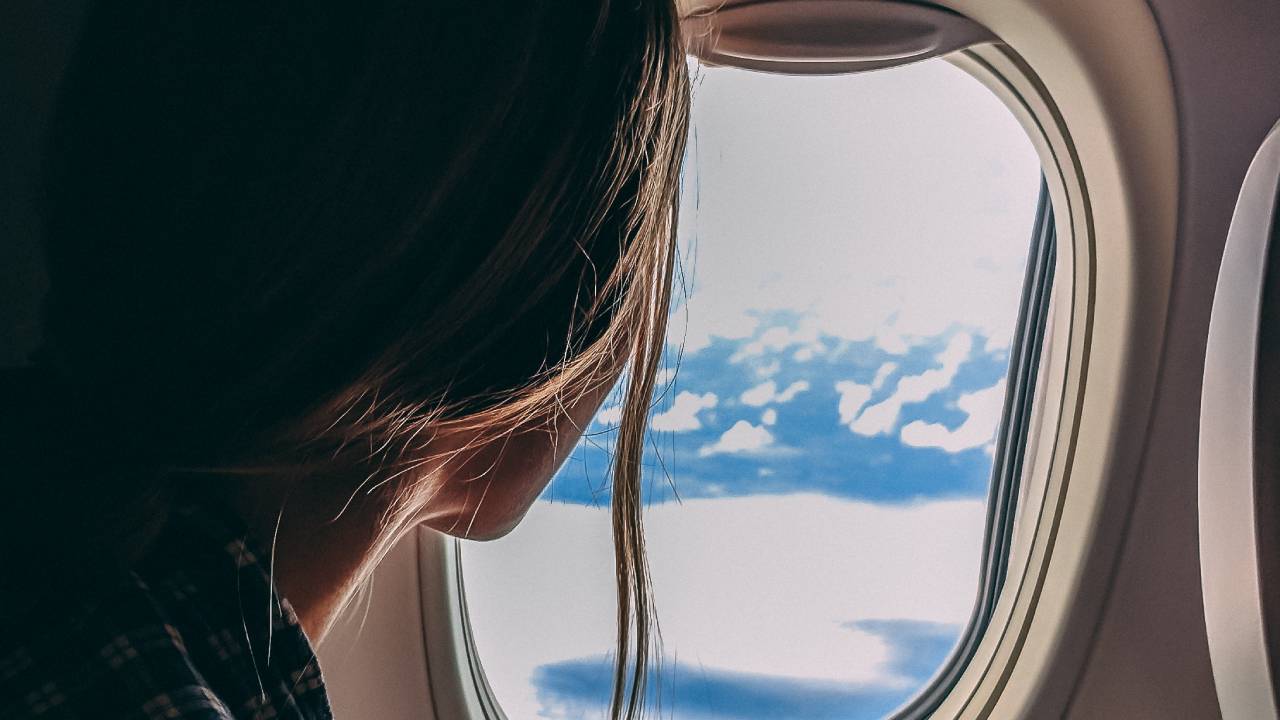
Let’s be honest, sleeping on a flight isn’t the easiest thing to do. From loud announcements from the cabin crew to having to wake up for the person next to you to go to the toilet, there’s a lot of distractions and interruptions on an aeroplane which can ruin your sleep.
If you’re on a long haul flight or you’re heading somewhere with a big time zone change, sleeping on a plane is crucial if you want to arrive at your destination feeling energised and ready to start your holiday. To find out more, I spoke to sleep expert and CEO of MattressNextDay, Martin Seeley about his tips for sleeping on a plane.
1. Go for a walk before boarding
Regardless of the duration of your flight, sitting on the plane for a prolonged period of time is uncomfortable. Going for a walk before boarding can help your body cope better and according to Seeley, it can help you sleep better too. “Studies have shown that just 30 minutes of moderate exercise can boost sleep quality. A further study found that women who spent more time being active reported improved sleep and more time spent asleep, which is essential before the start of your holiday.” Seeley recommends having a 30 minute walk around the airport or duty-free to get your steps in and help you fall asleep quicker and for longer… plus it gives you something to do while waiting for your gate.
2. Choose the right seat
If you’re planning on getting some ZZZ's on your flight, try to choose the right seat on the plane when you book it. The ‘right’ seat can mean a lot of things but Seeley says there’s actually a prime spot for sleeping on a plane. “Pick a seat in the same row as the wing. Not only is this likely to be the quietest area but as the wing is usually where the emergency exit is, you’ll have more leg room. However, if you’re flying long haul, make sure to book the front of the plane as you’ll be served food first and disembark first, which is why attendants recommend those seats for people looking to sleep.”
3. Time your sleep
The last thing you want when you’re trying to get some shuteye is to be constantly woken up, whether you’re on a plane or not! If you’re settling down for a nap, it’s important to time it properly so you’re not woken up by people eating or turning on their lights. “After the plane has taken off, ask the flight attendants when the food will be served. This way, you can time your sleep around the food and ensure you’re not disturbed by the service.”
4. Prepare a sleep kit
Sleeping upright for several hours can bring on aches and pains so to avoid this, prepare yourself a sleep kit and keep it in your best carry-on luggage. Seeley suggests bringing socks, an eye mask and earplugs for this. “The aircon on a plane can get cold and wearing socks can actually stop you from waking up if you’re a light sleeper. For those flying late or through the night, an eye mask is essential to block out the lights from people reading or watching TV. Additionally, we recommend earplugs to help drown out noise.”

5. Bring a travel pillow
For better support and comfort, make sure you bring a travel pillow with you. “A travel pillow will support your neck as you sleep upright. The best are ones that are made of soft memory foam as they can mould around the shape of your neck. However, if you don’t have one or have limited carry-on space, wrapping a blanket or scarf around your neck can help with sleep support.”
6. Use a white noise app
For those new to white noise, it combines all frequencies on the acoustic spectrum at the same intensity to create sound that blocks out other noises to avoid disrupting your sleep. As planes are very noisy, using a white noise app is a great way to mask the sounds around you and help you fall asleep without too many disruptions. There are plenty of apps where you can find dedicated white noise playlists, including Spotify, Calm and Headspace, and you can also turn your iPhone into a white noise machine with this hidden feature.
7. Avoid alcohol on the plane
One of the key tips for good sleep hygiene is to avoid alcohol before bed, and the same can be said when it comes to flying. “While it may make it easier for you to drift off, alcohol disrupts your sleep and lowers the quality, making you more tired. And, if you’ve ever had a scratchy throat on a plane, that’s because the air is notoriously dry. Drinking water before and throughout your flight will alleviate these problems and make it easier for you to fall asleep.”
8. Change the time on your watch and phone
To avoid jet lag, Seeley recommends “changing your watch as soon as you board the plane so you can sleep and act according to that time zone. If you’re flying long-haul, I’d also recommend adjusting to the new time zone two to three days before you fly to regulate your new sleep routine. Both these tips will help your internal body clock adjust, making you less susceptible to jet-lag.”
For more travel tips, check out these 12 travel gadgets you need to take with you on your next trip.







